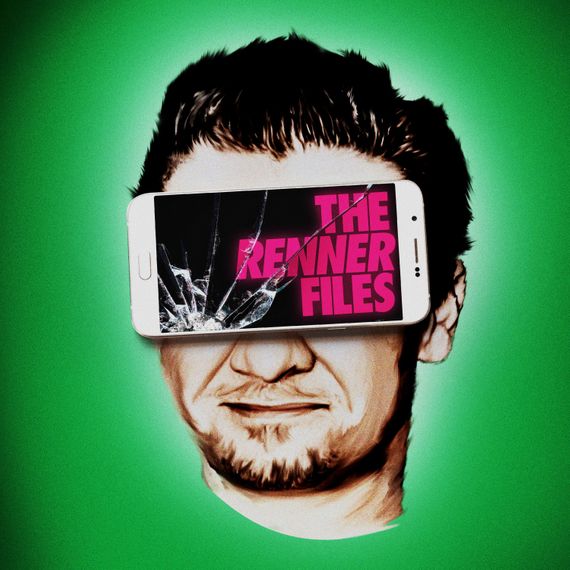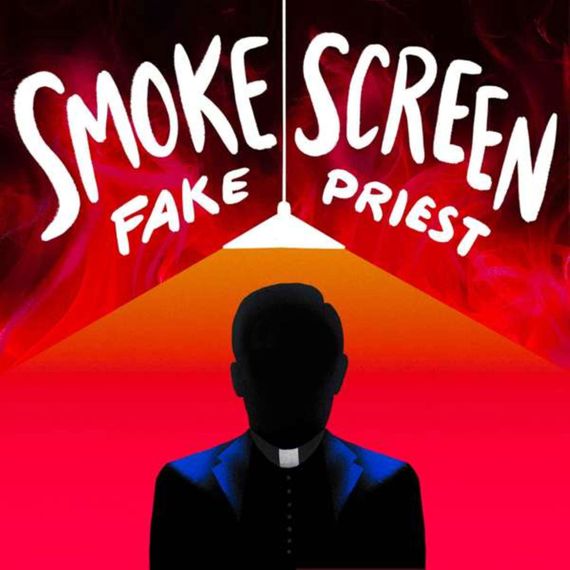
The lead pick in this week’s edition of 1.5x Speed has to do with a customized celebrity vanity app, which is a thing you can do as a celebrity if you have the resources and the following to make any of the effort worth it. Now, I’m no celebrity, but if I were to make my own vanity app, it would almost certainly involve animals, social networking, and gamification. It would also almost certainly crumble beneath the weight of toxic behavior and a lack of proper moderation, so let us all save the trouble of going through this traumatic time together.
On a less toxic note, let me know about the podcasts you’re listening to. Find me on Twitter or reach me over email: [email protected]. On to the week’s picks.
The Renner Files
Celebrities do all kinds of crazy things as part of the complex business of being a celebrity: They start lifestyle brands, moonlight as bourbon peddlers, become Happy Meals, and, of course, make vanity apps. Tom Hanks has one, a typewriter app (natch). Aaron Paul once launched a Yo knockoff called Yo B*tch (again, natch).
And then there’s Jeremy Renner.
In 2017, the actor rolled out the Jeremy Renner Official app, pitched as a way to foster a more direct connection with his fans. In practice, the app turned out to be an OnlyFans-adjacent affair built specifically for the Rennerheads of the world, to the extent they exist. The app lived a brief and confusing life, ultimately shutting down last year after trolls hijacked the platform and did stuff like pose as Casey Anthony pretending to be a huge Renner fan. Because, you know, the internet.
Anyway, Renner’s fleeting app adventure could have been written off as just another footnote in the annals of all the crazy things that happen in the celebrity world, but now we have the opportunity to plumb the true depths of this saga with a new six-part podcast from Caroline Goldfarb and Sarah Ramos. The Renner Files is premised on asking the obvious question: Why did Renner create a vanity app? But as the podcast unfolds, it also turns out to hit at an even more obvious question: What is Renner’s deal anyway? Why is this dude so extra? What’s with the house-flipping, Jeep commercials, and a music career on the side? Also, toxic masculinity much?
In case it isn’t already apparent, The Renner Files is a parody of sorts. The show presents itself as an absurd take on the true-crime podcast, mostly expressing the bit through a combination of leaning hard into the genre’s overthinking tendencies and a sustained reliance on Goldfarb and Ramos doing a killer Karina Longworth impression.
Now, parodies are hard to execute, and harder to make it worthwhile. Two episodes in, it’s a little unclear whether the show will pull it all off, and the bit does get a little tired after a while. Still, The Renner Files remains an extremely fun listen, if only for the sheer pleasure of ingesting the high volume of unexpected Renner biography and trivia the show throws at you. It’s a testament, weirdly enough, to Renner himself — what a strange, strange man.
Another unexpected pleasure is the way The Renner Files provides insight into the utterly fascinating world of celebrity finances. How do celebrities think about money, if they’re not already insanely rich? How do they weaponize their celebrity toward capitalistic ends? Will there be a sequel series about George Clooney’s bizarre tequila fortune? I’m sticking around to find out.
Radiolab: “No Special Duty”
Apple Podcasts | Spotify | Stitcher | Website
Radiolab, nowadays a podcast institution, has gone through a lot of change, both recently and over the years. Last week, the show announced that it was adding Invisibilia’s Lulu Miller and longtime staffer Latif Nasser as co-hosts, taking over the spot left open by the retiring Robert Krulwich, and more broadly, the show — historically associated with stories about science and philosophy — has been steadily integrating stories from the harsher, earthier, and murkier territory of society and the law into the mix. This shift is most clearly marked by the launch of its 2016 spinoff, More Perfect, though it can perhaps be traced as far back as “60 Words,” an episode originally produced in 2014. The show hasn’t completely abandoned its whimsical whiz-bang aesthetics in this transition — preserving it in ways I tend to find really distracting — but it is, in many ways, more capable of darkness these days, more willing to sit with our worst selves.
“No Special Duty” isn’t quite the culmination of this shift, but it’s definitely an example of how the show has become all the stronger for it. Led by B.A. Parker and Sarah Qari, the episode sets out to grapple with a fundamental question about policing: What are the police for? The journey toward finding that answer is pure Radiolab. The narrative starts with a gripping tale of a ghastly crime, before pulling back the frame to present you with a bigger discovery — one that’s unexpected, complicated, and infuriating. That discovery is this: For a number of legal reasons, the police don’t always hold the official responsibility of protecting the public. Which brings us back to the original question: What is the structural point of the police? The episode doesn’t ultimately come to a clear answer for that initial query — though some would argue it’s all about property protection and self-preservation — but the effect lands nonetheless. Something’s not right here.
One other thing that struck me about this episode is Jad Abumrad’s performance as the straight man/audience surrogate. It’s a role he has to play as the host, requiring him to react to the story as a device to situate listeners and keep them on the narrative ball. There’s a lot to be said about the assumptions the show makes about its listeners within this device — in terms of race, class, and so on — but this may be the first time I felt the device’s limitations with respect to a topic that’s still being subjected to a really fluid discourse. It’s an understatement to say that it’s been an intense year as far as the conversation around policing in America is concerned, and that discourse feels like it’s still sprawling out in different directions. I can sense my own interior radicalization on this topic, and though my perceptions are far from solidifying, I did find myself responding to Abumrad’s “Wait, what?” replies with a certain coldness. Indeed, these are tricky times for big shows pitching down the middle.
Meanwhile…
• Looking for something about the future that’s generally hopeful? There’s a new short-run fiction anthology podcast hosted by Keisha “TK” Dutes and Rose Eveleth called Open World that just dropped this week, and the first episode features a reading of The City We Became, by N.K. Jemisin, which is a great book if you haven’t already picked it up.
• The Houston Astros might have “moved on” from the 2017 sign-stealing scandal, but the laws of the scandal-obsessed investigative podcast genre dictate that we must dedicate at least one narrative audio series to the affair. And so we are given one by Cadence13 and Prologue Projects in the form of The Edge: Houston Astros, led by the sportswriter Ben Reiter, which comes out tomorrow.
• This is scandal adjacent, but Epic Magazine is launching a new show that “examines historical moments of irrational confidence” later this week. It’s called Go for Broke, and given what has been happening in the White House, this pod is probably going to be broadly relevant to These Times.
• Quick plug for Bowen Yang’s appearance on It’s Been a Minute With Sam Sanders. Also, for Las Culturistas!
Reader Pick: Smoke Screen: Fake Priest
Apple Podcasts | Spotify | Stitcher
“In the first two episodes alone, there are more twists and turns than one of the crappy old garden hoses I am constantly fighting with in my backyard. I will admit: At first, I almost passed on this podcast, thinking it was another story about the sex-abuse scandal in the Catholic Church, and I wasn’t sure my fragile quarantine state of mind could handle that at the moment. But lo, what surprises were about to be unfolded before me.
Father Ryan pretended to be a Catholic priest for 30 years. During those years, he started churches and did all the normal priestly duties: He took nuns in under his wing, “borrowed” money from parishioners, and convinced a woman to name him power of attorney to her estate, despite her having a number of grown children. He weaseled his way out of lawsuits and gained the sympathy of a private detective who bailed him out and went on to purchase one of his churches with all of Father Ryan’s belongings. Did I mention he was also legally adopted as an adult? Come for Father Ryan and stay for the llamas. That’s right: There are llamas, and they get their own episode.” —Debbie N., Portland, Oregon
And that’s a wrap for 1.5x Speed! Hope you enjoyed it. We’re back next week, but in the meantime: Send podcast recommendations, feedback, or just say hello at [email protected].





